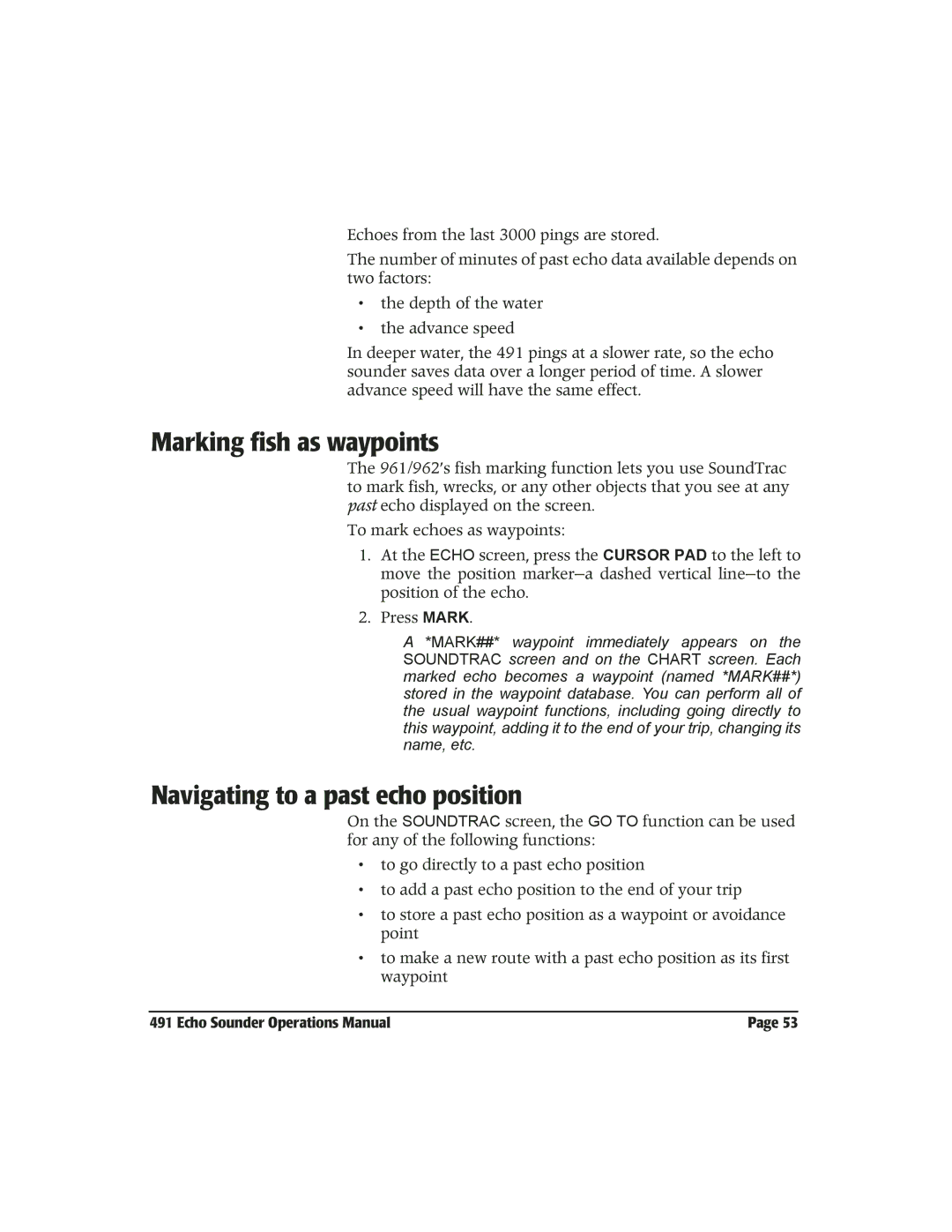Echoes from the last 3000 pings are stored.
The number of minutes of past echo data available depends on two factors:
•the depth of the water
•the advance speed
In deeper water, the 491 pings at a slower rate, so the echo sounder saves data over a longer period of time. A slower advance speed will have the same effect.
Marking fish as waypoints
The 961/962’s fish marking function lets you use SoundTrac to mark fish, wrecks, or any other objects that you see at any past echo displayed on the screen.
To mark echoes as waypoints:
1.At the ECHO screen, press the CURSOR PAD to the left to move the position
2.Press MARK.
A *MARK##* waypoint immediately appears on the SOUNDTRAC screen and on the CHART screen. Each marked echo becomes a waypoint (named *MARK##*) stored in the waypoint database. You can perform all of the usual waypoint functions, including going directly to this waypoint, adding it to the end of your trip, changing its name, etc.
Navigating to a past echo position
On the SOUNDTRAC screen, the GO TO function can be used for any of the following functions:
•to go directly to a past echo position
•to add a past echo position to the end of your trip
•to store a past echo position as a waypoint or avoidance point
•to make a new route with a past echo position as its first waypoint
491 Echo Sounder Operations Manual | Page 53 |
